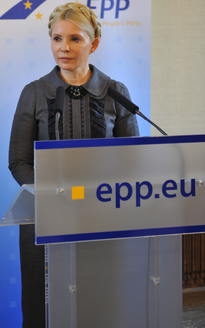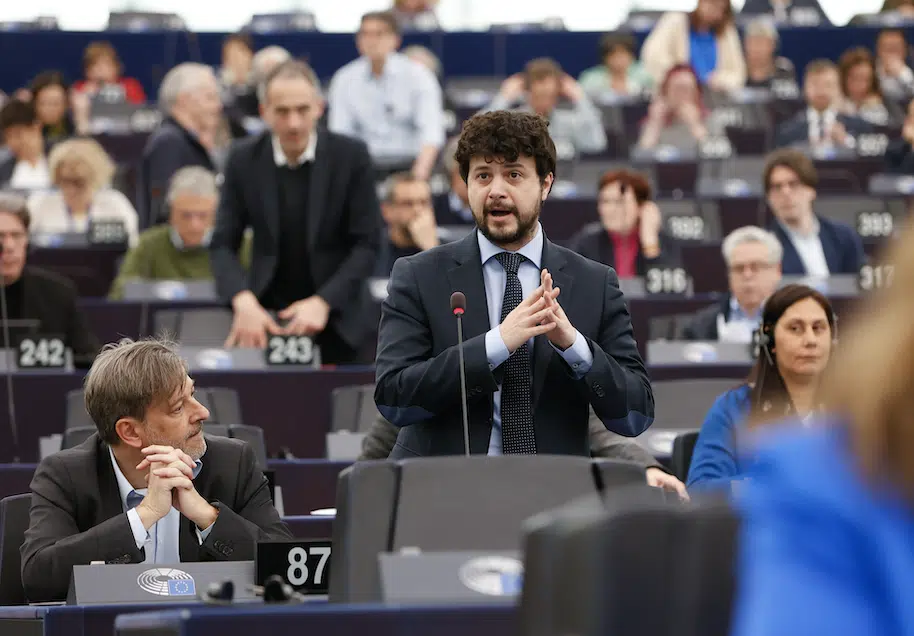
It looks like Yulia Tymoshenko will spend more time in prison. The Ukrainian parliament failed to ratify a set of laws which would have allowed her to receive medical treatment in Germany. By not doing so, the government effectively decided not to sign the Association Agreement and the Deep and Comprehensive Agreement (AA and DCFTA) with the European Union at the upcoming Eastern Partnership summit in Vilnius at the end of the month.
This is a major blow for both Ukraine and the EU. For Ukraine, this was the best possible deal Brussels could have offered. For the EU, this marks a failure for the Eastern Partnership policy, which stepped up its engagement in the whole of Eastern Europe since 2009, but seems to have persuaded only Moldova and Georgia of the opportunity of this offer. What went wrong?
Much of the explanation lies in the ambiguous relationship between Moscow and Kiev. It is somehow ironic that Russia emulated some of the methods used by Brussels and proposed the creation of a Eurasian Customs Union to those same countries which have been offered the AAs and DCFTAs. The two offers are not compatible. Belarus has always been on board; in September Armenia shocked the EU by switching to Moscow’s proposal; and now it is to be expected that Ukraine too will get closer to Russia.
Of course, Moscow also pulled out its better know foreign policy tactics to ’persuade’ these countries to shift to its orbit, by threatening trade cuts or energy provision repercussions should Kiev sign the agreement with the EU. Ukraine has a precarious financial situation and a leadership which is more interested doing business and getting re-elected (presidential elections are due in 2015) than thinking about the long-term future of the country. So it looks like short-term gains have had the upper hand over long-term advantages.
But could things have been dealt with different in the EU? Placing the blame squarely on Russia probably reflects much of what has been going on during the closed door meetings between the two presidents Yanukovich and Putin, but the EU should draw some lessons too on how to use its leverage and conditionality.
First of all, the personalization of political relations around the figure of Yulia Tymoshenko was, quite simply, a mistake. She may be for many a revolutionary heroine, who is very close to the European leaders who are part of the European People’s Party family. But it is one thing to offer sympathy to an ally, quite another to address ‘selective justice’ by staunchly defending a single politician. The judiciary in Ukraine was dysfunctional even before the trial against Tymoshenko started, but there was very little said by the EU in those days on this matter. One lesson the EU should draw is that it should focus on reform of the state and avoid being drawn into disputes between political rivals in a country which is not famous for the moral standards of the ruling classes.
The personalization of the situation in Ukraine also limited the EU’s room for manouevre and negotiation. Tymoshenko herself pleaded the EU and Ukraine government to sign the AA and DCFTA. But the EU cannot backtrack on the conditions set without losing its face. Focusing on qualitative reform would have given some space for interpretation and negotiation (the Ukrainian parliament passed one law on electoral reform of the three conditions set by the EU). This is too little, too late, but had there not been the overhanging Tymoshenko issue it could have been argued that at least some progress was made, however insufficient.
Thirdly, the DCFTAs do not offer any immediate benefits or incentives to Ukrainians. In fact, in the first instance there are costs of adaptation, which the state, sectors of business and society would all have to pay. In all the neighbouring countries which are struggling not to go bankrupt, the EU has been unwilling to offer any concrete financial support or incentive to buy into approximating their rules to the new trade regime. With fissiparous politics, it would be hard even for a committed government to push for an agreement which in the short run bears more costs than advantages.
The package that the EU has proposed to Ukraine is the best that will ever be on offer. Brussels is not about to launch a Marshall Plan towards its neighbours, despite the fact that these countries are becoming less, not more stable. This is not because the strategic challenge is not appreciated in European capitals. It is simply not appreciated in the same way. Some thinking among the European capitals on how to address the many challenges in the neighbourhood may be the fourth lesson to be drawn from these events.
Rosa Balfour





![Teresa Ribera, vicepresidente esecutiva della Commissione Ue responsabile per la Transizione pulita e competitiva [Bruxelles, 10 aprile 2025]](https://www.eunews.it/wp-content/uploads/2025/04/ribera-250410-350x250.png)




